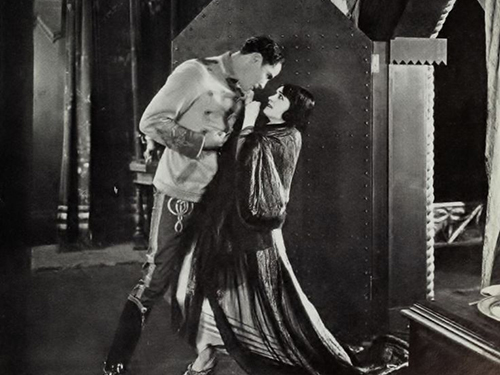
“American cinema seemed to achieve perfection at that time: perfection of the cut, perfection of the stitching, perfection of the fabric. There is not haute couture only in Paris, just as there is not ‘haute production’ only in Hollywood. The perfection of taste and technique, absolute mastery, discretion in daring. Ernst Lubitsch was, in our memory, the man whose oeuvre will someday symbolize this perfection, this flawless style that was the distinctive feature of this art.”
Henri Langlois1
“Forbidden Paradise (1924), a period film in contemporary costume, comments on the transition from one national cinema to another through its irreverent play with different temporalities. The result is an unusual piece of cinematic mockery. Praised by Lewis Jacobs as ‘a source picture for a circle of young directors’, Forbidden Paradise brilliantly parodies the genre of the period film by mixing different historical periods.
[...]
Forbidden Paradise demonstrates to what degree social interactions and filmic techniques have become calculated as well as calculable.”
Sabine Hake2
- 1Henri Langlois, Écrits de cinéma (texts collected by Bernard Benoliel and Bernard Eisenschitz) (Paris: Editions Flammarion, Cinémathèque française, 2014) [Translation by Cinémathèque Française]
- 2Sabine Hake, Passions and Deceptions: The Early Films of Ernst Lubitsch, (Princeton: Princeton University Press, 1992), 59.

